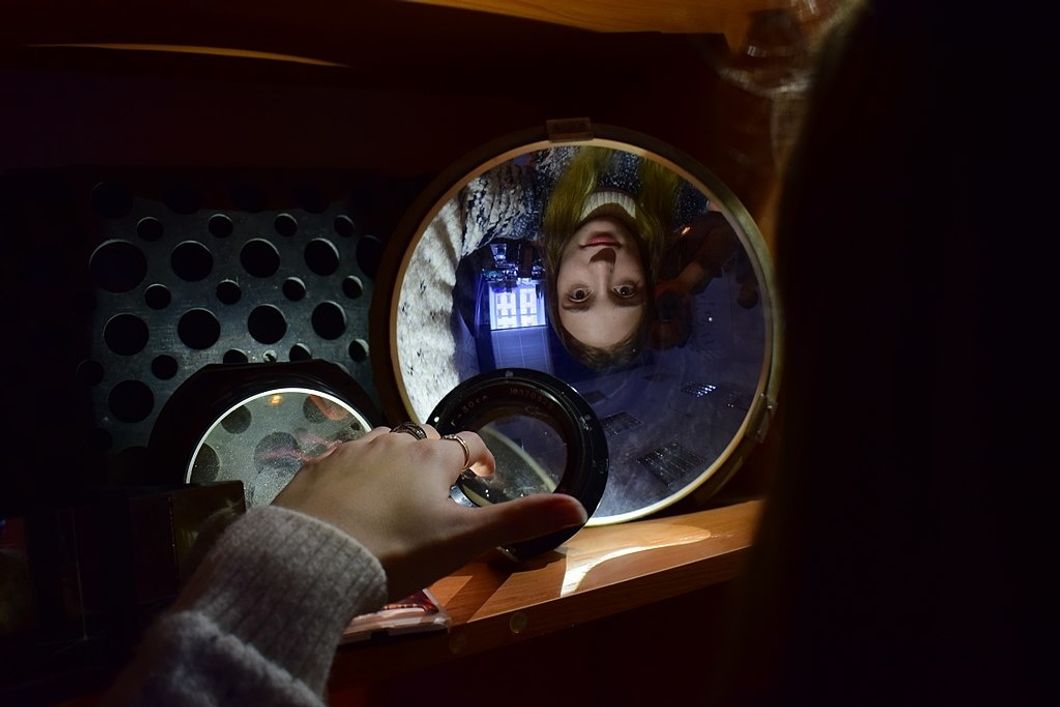Is a two-way mirror the only way a person can see another as their true selves? If we're one person by ourselves, and one with another, then how do we know who's the real one? Is there a real one?
Or, are we so uncomfortable with the combination of our two selves that we unconsciously multiply ourselves; two or more sides for two or more people. A balancing act of personas where if you lean too far on one side, you'll create a paradox of who you are to the person you're standing beside.
Two-way mirrors in crime dramas are questionable at best. The person being held in the interrogation room is alone for a portion of time, and on the other side of that two-way mirror is at least one person, watching, listening, waiting to witness their suspect give them something they can use against them.
The suspect knows someone is on the other side of that wall, but the solitary box is quiet, the only noise coming from the suspect themselves. They're breathing, the creak of the chair as they adjust their position, the tapping of fingernails on the metal table. They aren't themselves even though they're alone, they've taken on the persona they reserve for another person, altering themselves to their environment.
Defensive, hysterical, fearful, calm. They've become this hybrid of self and other self, a compound of two selves that never mix, that aren't supposed to mix. They've created a third self, one that's set deep in the recesses of the mind, the instinctual self.
They do what they can and say what they can to protect themselves. They fit the mask to their face and perform. Tears, screams, arrogance, ignorance, a different mask for each individual occupant in the almost barren room.
They put on a show until there's no one watching them, until they're alone, no one to see who they are inside the four walls of safety they've created for themselves. They have no performance to give, no mask to wear, only the raw persona no one will see.











